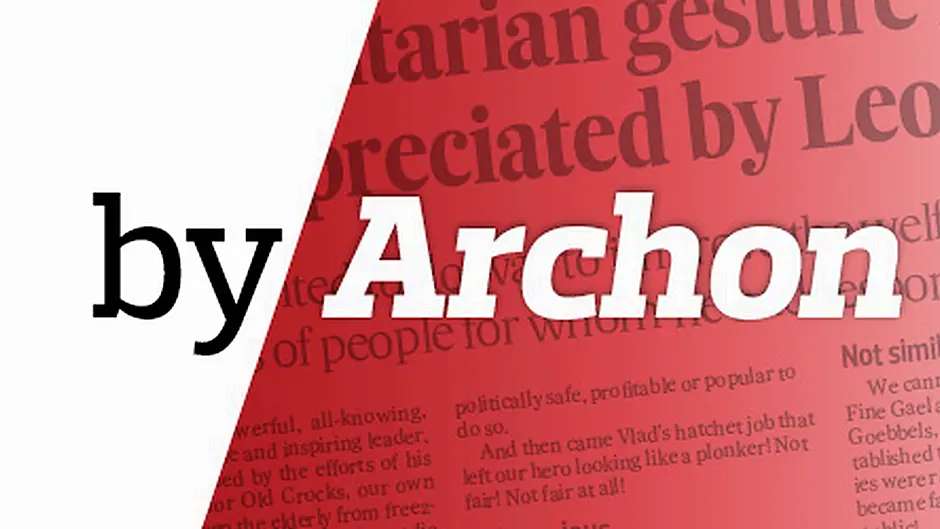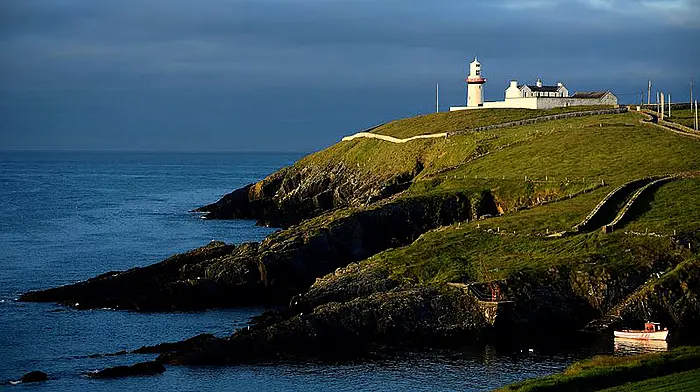ON November 24th, 2011, during a debate in Dáil Éireann, Taoiseach Varadkar made a remarkable statement that passed almost unnoticed – which was rather sad because what he said suggested that the Free State’s policy of torture, murder and exclusion, practised against republicans during the early years of Irish independence, had been a political error.
Vlad specifically was referring to one of the worst crimes committed by the Free State during the Civil War: the slaughter of eight republican soldiers at Ballyseedy, Co Kerry. According to the government of the time, the extermination of militant Republicanism was necessary if the new State were to survive.
Down through the years, Fine Gael apologists have taken the same line, arguing that despite the atrocities and hatred spawned by the Civil War, Fine Gael ensured that the parliamentary system flourished, even allowing its enemies, Fianna Fáil, to remain anti-Treaty.
Ghastly crime
Interesting too is that implicit in Vlad’s statement is the possibility that the government might one day issue an apology to the families of those murdered by the Free State.
Here’s what Vlad said on being asked by a Sinn Féin TD if the Free State had murdered Republicans at Ballyseedy: ‘Deputy Ferris raised the issue of Ballyseedy and I have been there. I can say, in clear conscience and without any doubt in my mind, that the events at Ballyseedy constituted an atrocity. I can also say that people who were executed without trial by the government were murdered. It was an atrocity. That is my view.’
His comments were frank, controversial and went largely unnoticed by the media. Incredibly, they also were ignored by Fine Gael, some of whose founders were responsible for the ghastly crime.
The Ballyseedy outrage was one of many carried out by the Irish National Army against anti-Treaty soldiers. Eoin Neeson, in his book ‘The Civil War 1922-23,’ writes that although most Kerry people supported the anti-Treaty forces, the important towns were occupied by pro-Treaty troops, a situation that facilitated their campaign of bloodletting and retribution.
In the Ballyseedy case, after a Free State officer was killed, nine anti-Treaty prisoners were randomly selected, brutally tortured and put to death in a vile fashion.
Tied to a landmine, their legs bound together above the knees, they were blown to smithereens. One man, Stephen Fuller, miraculously survived the explosion.
Dorothty Macardle’s ‘Tragedies of Kerry’ is worth reading for an account of what happened at Ballyseedy. It also includes accounts of other horrifying acts of repression that the Free State used in order to crush Republican resistance.
Chilling response
The response of WT Cosgrave (Ireland’s first Taoiseach) to the massacre was bloodthirsty and chilling. In February 1923, he announced that executions carried out by the State had a remarkable effect. ‘It’s a sad thing to say, but if the country is to live and we have to exterminate 10,000 republicans, the 3 millions of our people are bigger than the ten thousand.’
The head of the Free State National Army, Richard Mulcahy, who was also Minister for Defence, suggested that official executions deterred his troops from carrying out unofficial killings!
Outside of those thrown into a ditch with a bullet between their eyes or blown to pieces by mines, by the end of the Civil War the government judicially had executed 77 men – this was 53 more than the British executed during the War of Independence.
Even Britain’s General Macready was impressed by the ferocity of the new State. He observed: ‘Anti-Treaty support had been destroyed by means far more drastic than any which the British Government dared to impose during the worst period of the Rebellion.’
It was a comment with which republican historian, Dorothy Macardle, agreed. She wrote: ‘In its suppression of Republican resistance, the Irish Free State had accomplished for the English what the English failed to accomplish for themselves,’ adding that on July 1st, 1923, the number of military prisoners, many of whom were held without trial, was estimated at 11,316, of whom about 250 were women.
Sad story
The fate of one such prisoner, 23 years-old William Healy of Donoughmore, is particularly sad. He was the last man to be executed at Cork Gaol (March 13th, 1923). Having taken part in many Volunteer activities during the War of Independence, he joined the Republican side at the outbreak of the Civil War, only to be captured by the Free State and shot.
This newspaper, some years ago, reported the unveiling at his birthplace of a plaque to his memory. It quoted from an emotional letter he wrote to his father some hours before his execution in which he forgave the firing party, and encouraged others to do the same.
A dirty war
But now, on the basis of what Varadkar said about Ballyseedy, the current Government seems ready to acknowledge that its Free State antecedents carried out a ‘dirty war’ against its anti-Treaty opponents.
And with the State currently in the process of sponsoring a ‘decade of centenaries’ relating to significant events in Irish history between 1912 and 1923, would it not be appropriate if it formally apologised to William Healy’s family and to the families of all those executed during the Civil War?
The fact is that there is no reason why this current Fine Gael-dominated government could not adopt a reconciliatory position in relation to events that took place almost 100 years ago.
According to the historians behind the commemoration of historical events (known as ‘The Decade of Centenaries’), the State’s task is to encourage a reflective and reconciliatory tone that takes into consideration the fact that neither side has the monopoly of either atrocity or virtue, and that this is true of words as well as actions.
Old wounds re-opened?
Indeed, except for the Ballyseedy comment, Varadkar has never revealed his own opinions on the Civil War and he doesn’t want his official ‘Decade of Centenaries’ to finish on a ‘downbeat note.’ He believes this is precisely what will happen if the country gets involved in organising a plethora of commemorations to mark the Civil War. Old wounds among families would be re-opened.
Nonetheless, in spite of his prudence, Vlad enhanced the importance of human rights and justice in this country when he acknowledged that the atrocity committed by his political forerunners at Ballyseedy was a crime against humanity.







